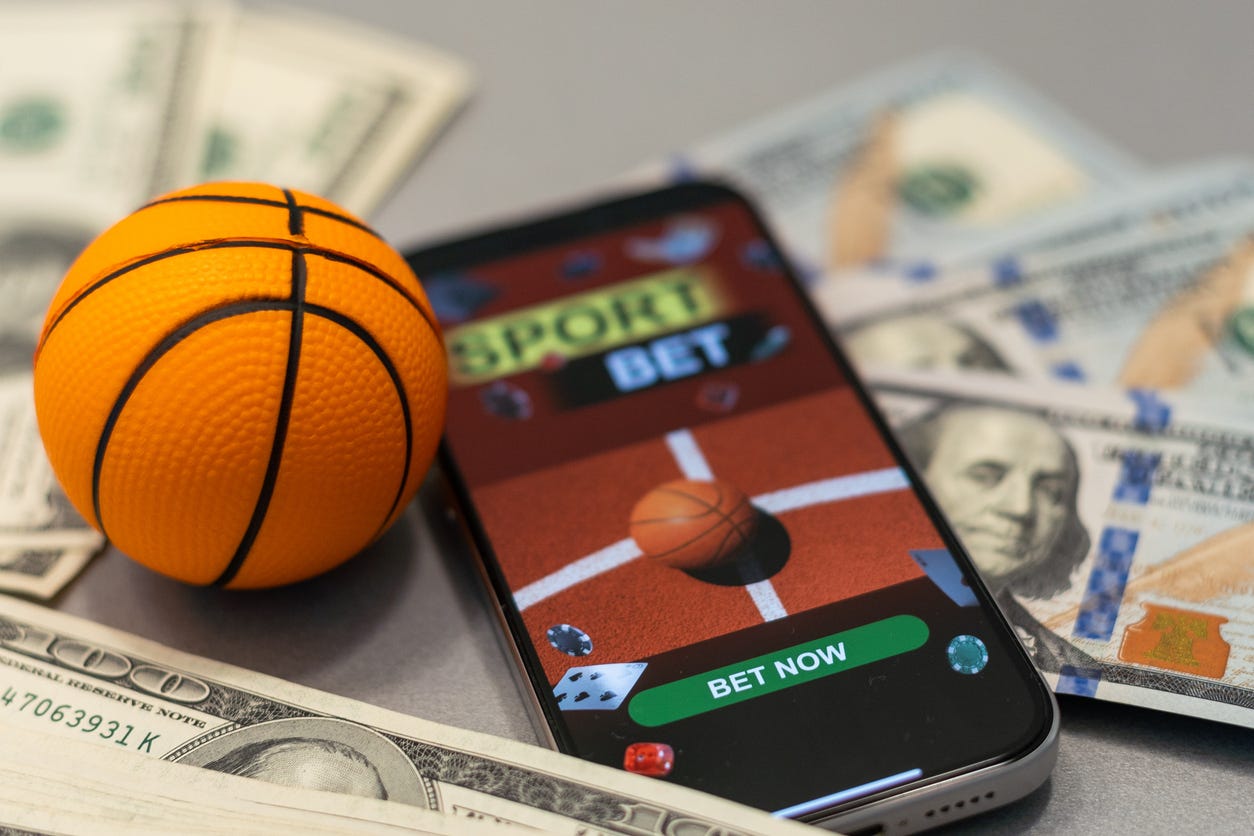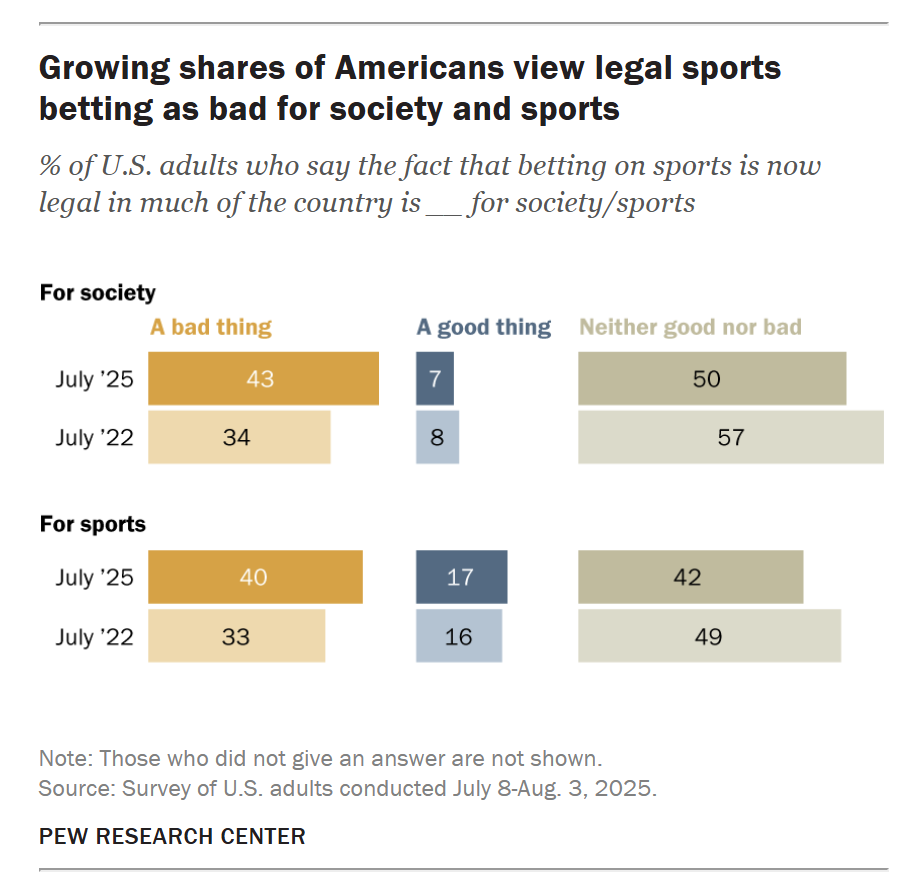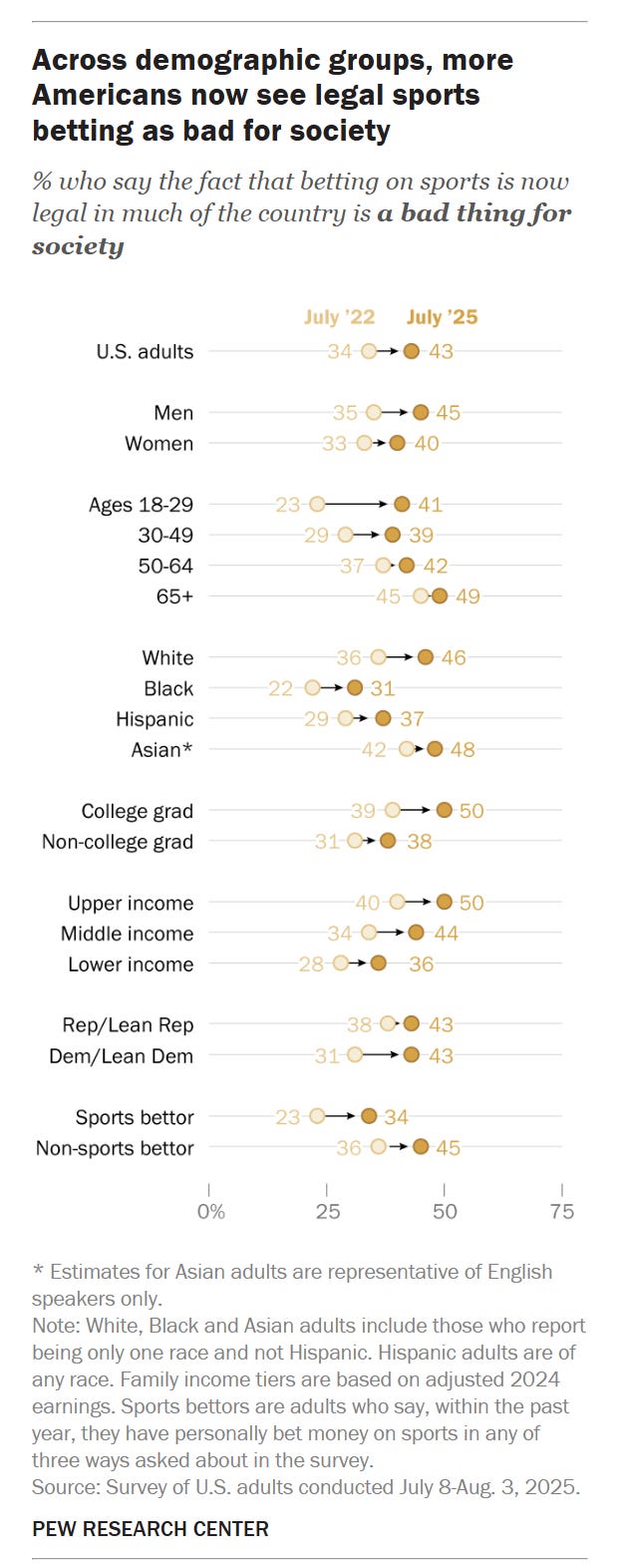
As sports betting spreads nationwide, Americans are growing wary. Even young men, the most frequent bettors, are beginning to turn against the game.
—Pew
According to a new Pew survey, Americans have grown more negative about sports betting. In 2022, 34% of adults said it was “bad for society.” Today, that share has climbed +9 points to 44%, driven mostly by people moving out of the neutral camp (57% → 50%). Meanwhile, the share who say sports betting is “good for society” has held steady at a measly 7%.

Since 2022, every demographic group has grown more negative toward legal sports betting. But young adults (ages 18–29) have shown the largest attitudinal shift, with negativity nearly doubling from 23% to 41%. The change is even more dramatic among young men: just 22% held a negative view in 2022, compared with 47% today. That’s a massive 25-point surge. Young men are also the group most likely to have placed a sports bet in the past year (36%).
Interestingly, skepticism toward sports betting cuts across party lines: 43% of both Republicans and Democrats say it’s bad for society. But views diverge by income, education, age, and race. The most negative attitudes are found among older, higher-income, college-educated Americans, as well as among white and Asian adults.

So why are Americans souring on sports betting? As legalization has spread, more people have experienced its downsides firsthand. Since the Supreme Court struck down the federal ban in 2018, online searches for help with gambling addiction have risen +23% nationwide. At the same time, it’s become widely known that many online sportsbooks quietly limit or ban users after big wins, which infuriates serious bettors. (See “Sharps and Beards: The Wacky World of Online Sports Betting.”) All the while, fans watching games are bombarded with nonstop gambling ads.
Of course, this survey doesn’t necessarily mean that actual sports betting is declining. A respondent can both enjoy betting and think it’s bad for society. America is full of guilty pleasures, from alcohol to reality TV to violent video games. Still, if nearly half of Americans think sports gambling is a societal ill—and only a small sliver think it’s a societal boon—it’s striking how swiftly state legislators continue to push its legalization and indeed its 24/7 normalization.



